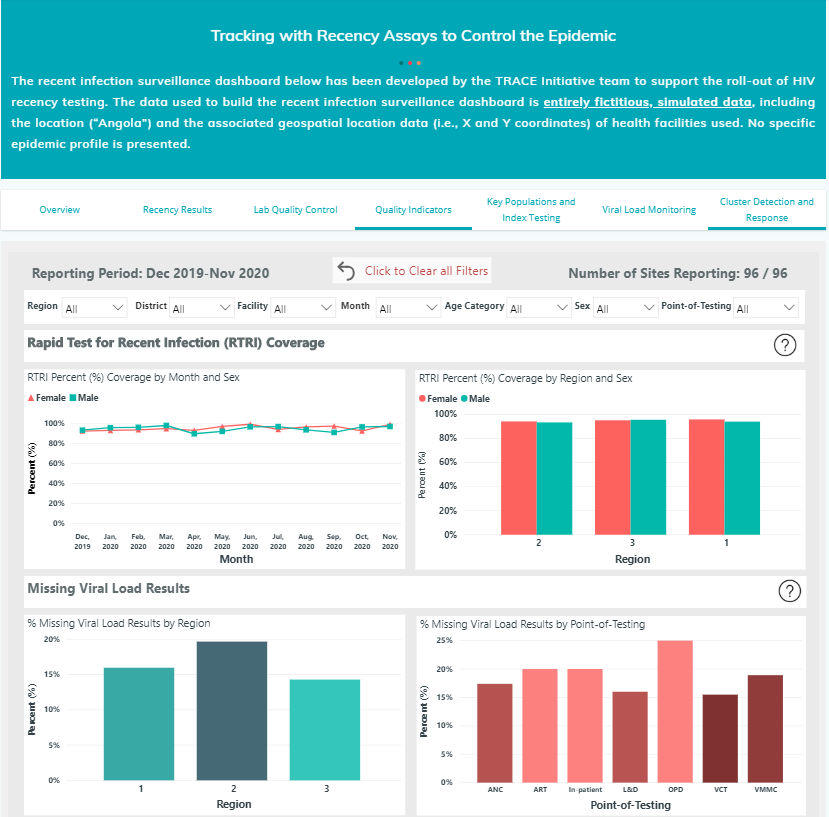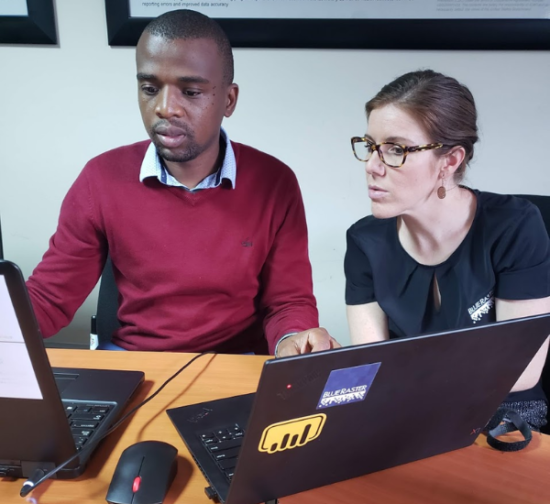Implementing a business intelligence platform requires users to think critically about the business questions they want their data to inform and the underlying data systems that will feed their data visualizations. Blue Raster has had the unique opportunity to work with ICAP (of the Columbia University Mailman School of Public Health), the University of California San Francisco, the CDC (Centers for Disease Control and Prevention), and Ministries of Health around the globe to put their data to work to end the HIV epidemic.
Ending the HIV Epidemic with Data
There has been significant progress over the past decade in the global health response to HIV, and the end of the HIV pandemic is within reach. Global health programs and Ministries of Health need high-quality, real time data in order to target the right interventions to the right populations at the right time, and we’re using Power BI and Esri ArcGIS Online to achieve these goals.
TRACE Initiative
Blue Raster and ICAP are working on the TRACE initiative (Tracking with Recency Assays to Control the Epidemic), establishing HIV recent infection surveillance systems in routine HIV services to detect, characterize, monitor, and intervene on recent infection among newly diagnosed people living with HIV (PLHIV). We are supporting the implementation of Power BI and ArcGIS to provide real-time data about recent infections and to deliver this data quickly to decision makers.

Power BI & ArcGIS Online
- Power BI is a business analytics solution that lets users visualize data and share insights for real-time decision making.
- ArcGIS Online is a cloud-based mapping and analysis solution that we’re using to make maps and perform rich geospatial analysis
Over the past few months, Blue Raster has been in the field with the ICAP team to:
- Introduce Power BI and ArcGIS online as a data visualization platform.
- Illustrate the analytic capabilities of the tools to the Ministries of Health and national Public Health entities
Blue Raster and ICAP walked through different implementation options with country teams, considering existing data systems and analytic tools. In addition, it was critical that HIV data get to the decision makers in a timely and usable format.
In Rwanda:
- Held meetings with local implementing partners and the Ministry of Health and decided on Power BI and ArcGIS online licensing and deployment

In Eswatini:
- We facilitated discussions in which the Ministry of Health team and the ICAP team came to a deployment decision quickly.
- The teams were able to spend time working in Power BI and shaping the data in the back end of the system.

In Ethiopia:
- Held a week-long training providing tailored content to data consumers, developers, and administrators (with participants from Ethiopia Public Health Institute, ICAP, and CDC)
- Data consumers worked in Power BI and walked through decision making exercises using sample data.
- Developers and admins walked through Power BI as a whole, from ingesting data to publishing/sharing reports to monitoring usage and incorporating end-user feedback.

These introductory workshops and trainings are just the beginning of our work with ICAP and country teams. Stay tuned to the blog for details on how this data is being used and how the trainings are adding value to the daily work of those on the front lines of ending the HIV epidemic.
Moving forward, ICAP and Blue Raster will have the opportunity to work with other countries in Sub Saharan Africa. For more information about the TRACE initiative and the countries we work in, please see https://trace-recency.org/ or visit our blog post.
- Posted in
- HIV
- ArcGIS Online
- Federal
- Health
- Power BI
